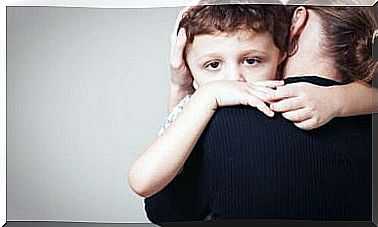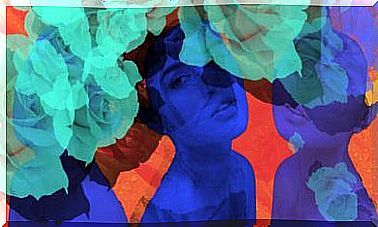Why Are Prejudices Born?

Maybe you have ever looked at society and said to yourself: “I don’t understand how people can be prejudiced against this.” The origin of prejudices, that is, what mental process originates them, is an object of great interest to social psychology.
In this article you will find a review of the approaches that have been given to this topic. If you are looking for information to better understand what goes through the mind when a prejudice is generated, read on.
Motivations associated with the origin of prejudices
This current analyzes the internal factors that lead a person to adopt a prejudice. In particular, it is postulated that prejudices help reduce emotional tensions or satisfy unconscious needs. Two examples would be the following:
- Frustration : there is a close relationship between the feeling of frustration and aggressive behavior. A redirected assault can end up targeting someone as a scapegoat, usually from minority groups. Why these groups? A prior dislike, assurance that they will not be able to defend themselves or striking features are some of the reasons.
- Desire for superiority : the theory of social identity focuses its attention on comparisons with others and thinks that in them resides a good part of the positive vision we have of ourselves. When you want to enhance the vision of our group, there is a tendency to devalue others.

Sociocultural approach to the origin of prejudices
Some social psychologists claim that prejudices are learned. An example would be the case of racism: according to this approach, values of contempt and exclusion towards other races are instilled from childhood, a prejudice that develops and settles in the mind until adulthood.
Studies supporting this have found that racial biases between parents and children overlap significantly. But not everything stays in the family: the mass media have been strongly accused over the years for favoring prejudice against certain groups.
Personality factors
Although environmental factors drive the creation and sustainability of prejudices, individual differences in this field are very important. That is why there is another trend focused on finding out what makes it easier for some people to adopt or develop prejudices.
The most significant data in this regard associate the origin of prejudices with authoritarian personalities. People who gave this profile in the tests also used to come from authoritarian families, where the demands and expectations placed on them were great.
The cognitive approach
Having seen the previous approaches, many social psychologists wanted to go to the most basic thing in the origin of prejudices: the cognitive processes themselves. The cognitive perspective places this trigger in negative stereotypes. When pejorative characteristics are attributed to a group, discriminatory attitudes and behaviors are much more abundant.
But what other processes are there? Below we complete the list.
Categorization
This is a very basic and adaptive process of our mind that consists of grouping mental elements by categories. On the other hand, the action of “placing” a person in a mental category exaggerates the differences between that group and ours, which can lead to the formation of stereotypes.
This, in turn, can be combined with the desire to have a social identity. When this happens, sometimes the reaffirmation involves looking down on or discriminating against other groups.

Selective information processing
Why don’t prejudices and stereotypes change when people come across cases that deny them? To answer this, social psychologists claim that people do not process the world objectively, but biased.
We are likely to pay more attention to data that confirms our beliefs, that is, we process selectively. In fact, we can talk about three psychological processes affected by this:
- Attention: as it says above, people tend to see what we expect to see. One effect of this is illusory correlation.
- Perception: stereotypes influence how we perceive events in a subtle way. For example, in a case of racism, the attitude of the person of the oppressed race can be interpreted in a more threatening way.
- Memory: information that confirms stereotypes and prejudices is best remembered.
Conclusions on the origin of prejudices
The world is a complex place. Prejudices, as part of that world, are also multifactorial. Trying to understand the origin of prejudices with a holistic perspective is the task of giants, but little by little more tricks of our mind are revealed. Everything that is found out, of course, is invaluable material to continue advancing in the construction of a more just society.









